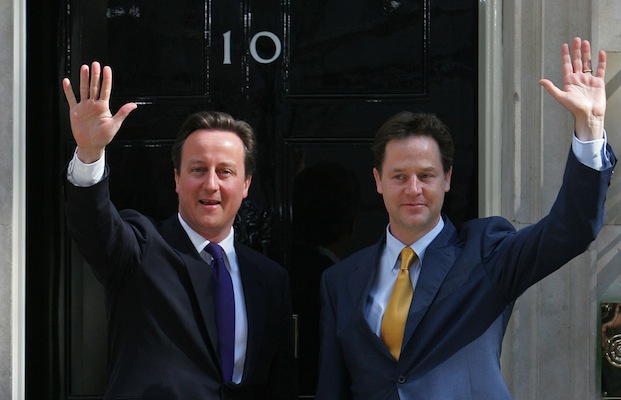One of the obsessions that will only get worse over the next few months – along with checking every poll that comes out every day to see whether you’re six points up, four points behind, or level-pegging – is what ‘red lines’ the parties will set out for their Coalition negotiations. David Cameron has made his EU referendum one, and it turns out that this isn’t as much of a problem for the Lib Dems as all their huffing and puffing on the subject would have you believe. Nick Clegg has been setting more red lines because he is the leader of the party that wants to talk about coalitions, as opposed to the two main parties that would still like to talk about majority governments, however implausible that may now seem.
Most of Clegg’s ‘red lines’ haven’t exactly been terrifying barriers for any party who might go into coalition with them: better treatment for mental health conditions, for instance, is pretty hard to say ‘no’ to. But yesterday Clegg set a red line that really is quite a toughie: he won’t let the Tories introduce their ‘Snooper’s Charter’. Speaking on the Today programme this morning, the Deputy Prime Minister elaborated on his opposition:
‘So the point I make is that sometimes people think if we pass the snooper’s charter everybody will be utterly safe and if you don’t pass it everybody will be utterly unsafe. It isn’t like that. At some point you need to make a judgement, don’t you, about the balance between security and liberty and the workability of these proposals.’
But David Cameron spent a lot of yesterday talking about the importance of such legislation in the light of the Paris attacks. He seems to be hinting heavily enough about it being important to suggest it will form a key manifesto commitment.
So why are the Lib Dems setting out a red line that will cause real difficulties in the Coalition negotiations? The answer may be that they think a compromise can be agreed whereby the Tories get something that is sufficiently different to a ‘Snooper’s Charter’ for Clegg’s party to be satisfied, or that they suspect the Tories won’t be as serious about this legislation in May, though it’s hard to see where they’re getting that hunch from. Or else, Clegg doesn’t think the Tories will mind the Lib Dems blocking the legislation if a second Con-Lib coalition only lasts for a short period of time rather than a full five-year fixed-term parliament.







Comments